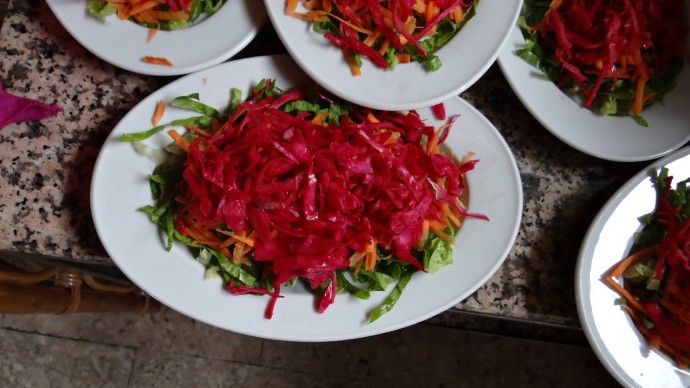
Leaving the busy city of Atalya, we bused overland through mountainous rocky country headed into the Taurus Mountains for an overnight with a family in the Village of Ormana Ibradi, Antalya, Turkey. On the way, we stopped for lunch at Kardeni-Pide, a roadside restaurant. Usla likes us to experience different foods and here we see salads with much red cabbage.
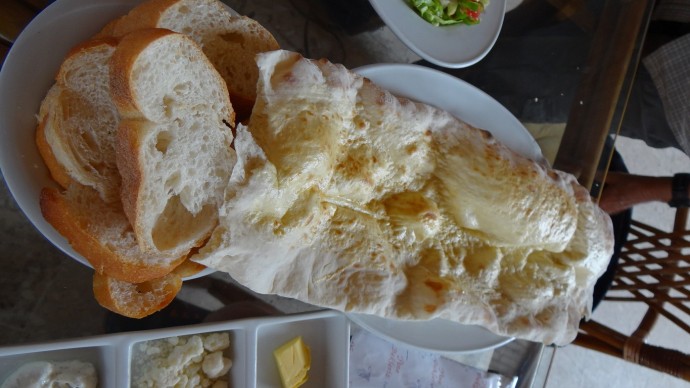
Our first offering of a type of flat bread along with the traditional loaf bread is brought to the table with the soup.
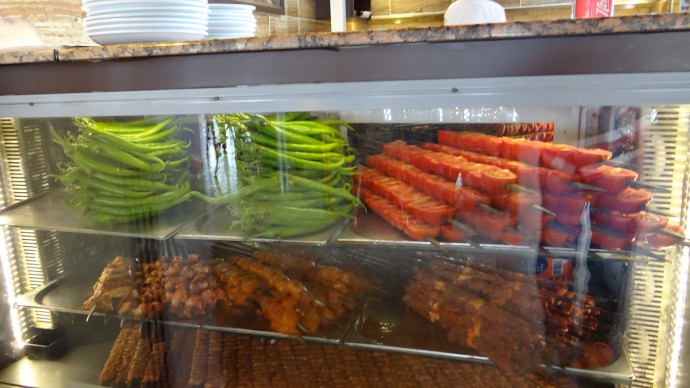
Service here is very quick as the cooks prepare everything ahead of time in a refrigerated case within view.

Owen, of course, ordered chicken shish, but I tried the hand-made pizza, a half of one is enough for lunch, but I ate most of this very substantial pizza. Best of others I’ve tasted.
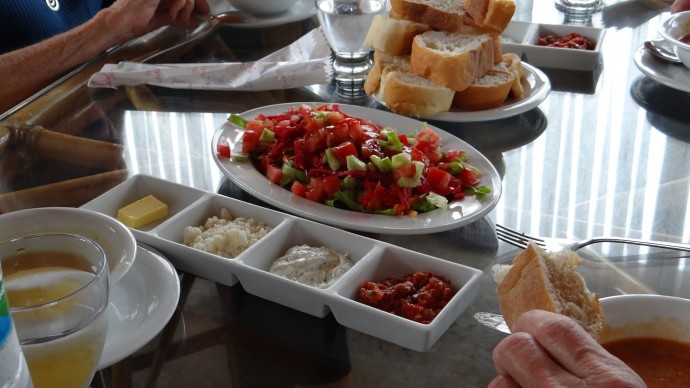
They served a type of walnut-tomato chili here as well that was delicious, in the small dish of condiment.
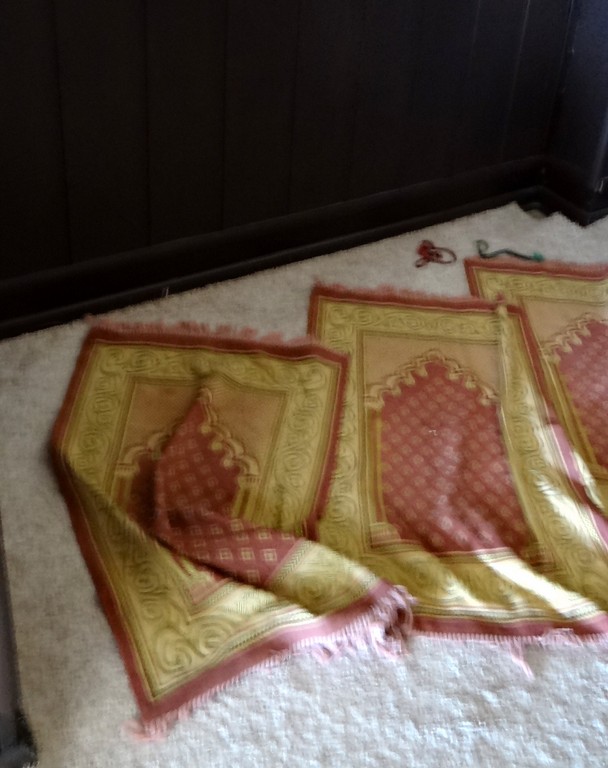
The restaurant owner provides a prayer room where employees can go upstairs and pray on their “break” that coincides with the call to prayer.
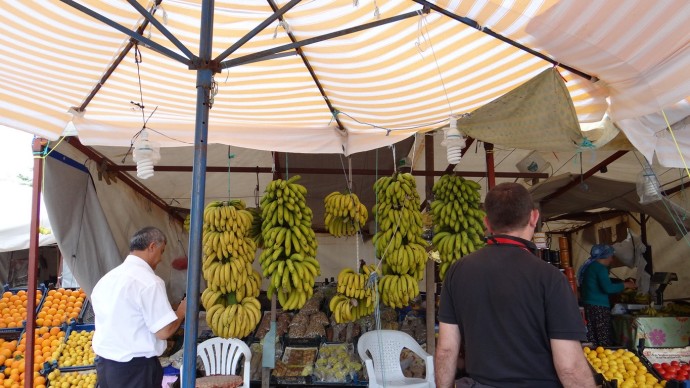
After many more miles down the road, Usla wanted to stop at a roadside fruit stand. He claims Turkish bananas are superior. He bought a bag for aboard the bus and they are very good tasting. And loquats to taste, new to some members from the Eastern U.S.
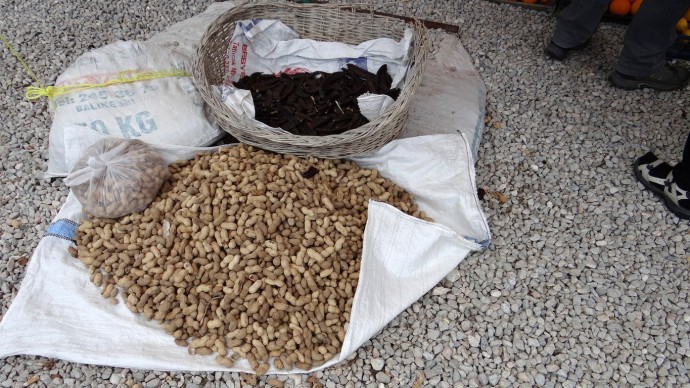
Typical fare at a stand here is raw peanuts and carob pods.
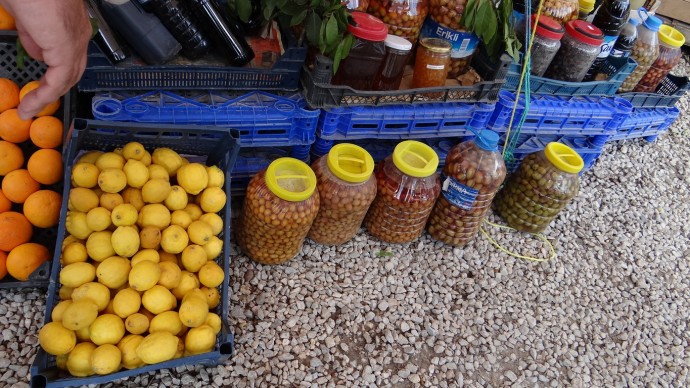
Citrus fruits and home canned jars of olives of various types and jams and syrups.
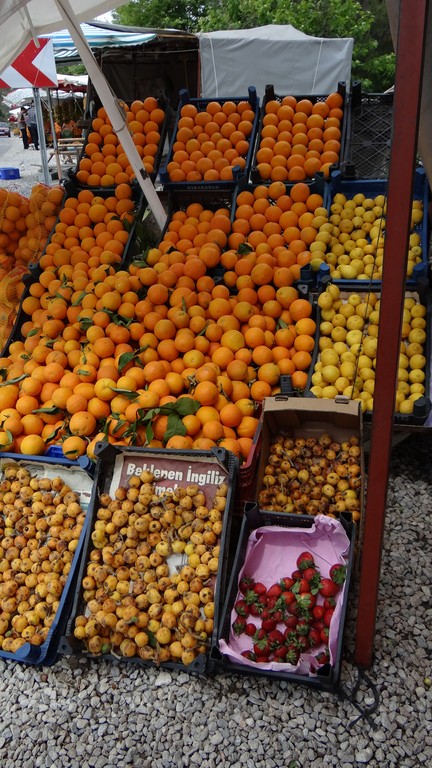
Everywhere is citrus fruits, melons and strawberries in season and loquats. Joan B. got a sour one but they are traditionally sweet and easy to grow.
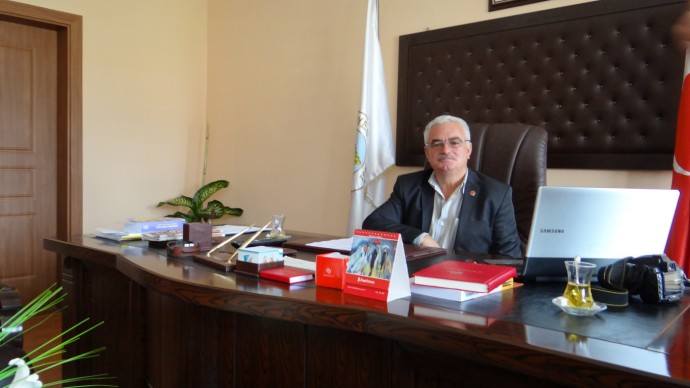
We met and had apple tea with the Assistant Mayor since the Mayor was visiting in Antalya and we actually met him there briefly at dinner in Old Town. He said he would have his assistant give us the keys to the city. We learned from the assistant that the population of Ormana Ibradi is 3,000 people and they have a housing shortage. People who have left, like their village because it is cool in summer and many people come here to retire. Their relatives come and visit during the hot summer months and they are trying to encourage more tourism and hotel space, which is almost non existent. I wanted to tell him that tourism will ruin this wonderful little village, (my opinion), but others agreed with that.
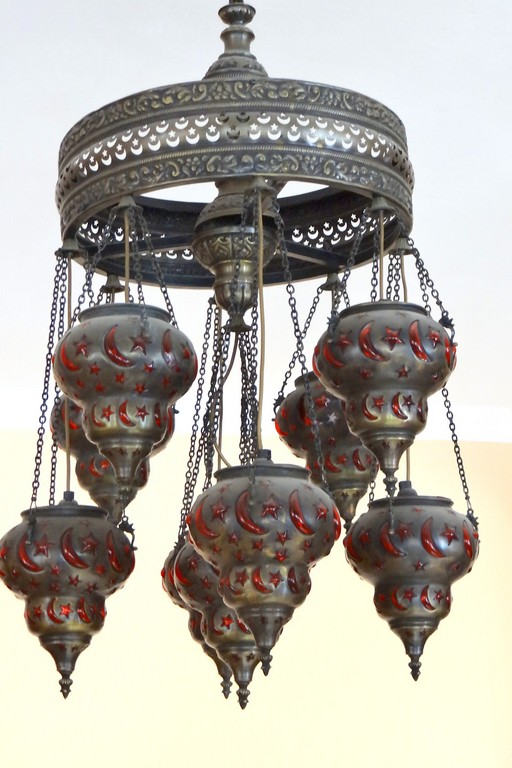
This beautiful chandelier with the star and crescent of the flag, hangs in the hall outside of the mayor’s office.
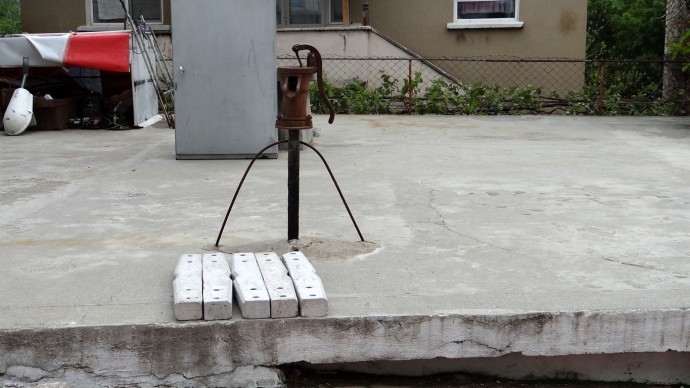
They have public water and gutters and farmers have wells.
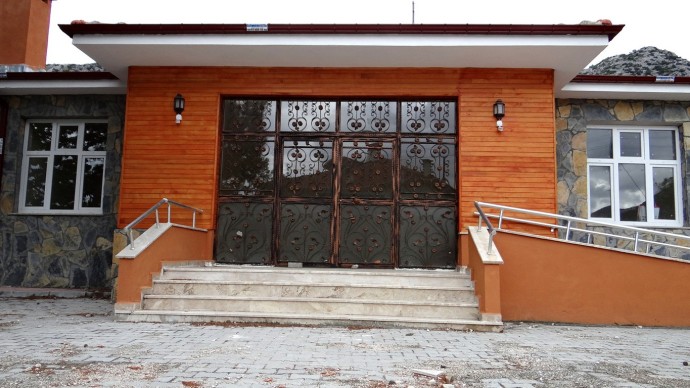
Village buildings appear to be more modern than the stucco structures we saw in the first village we visited.
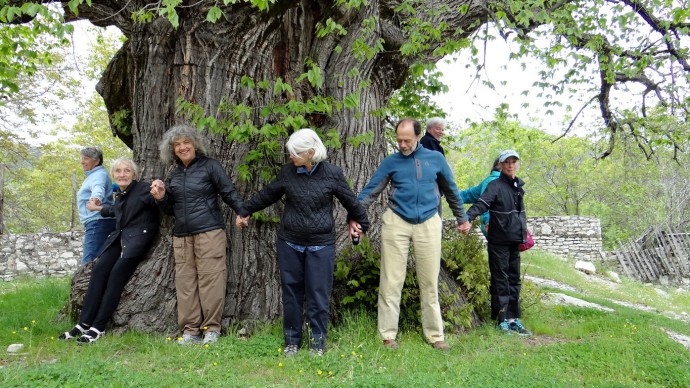
Usla wanted to show us a chestnut tree over one thousand years old.
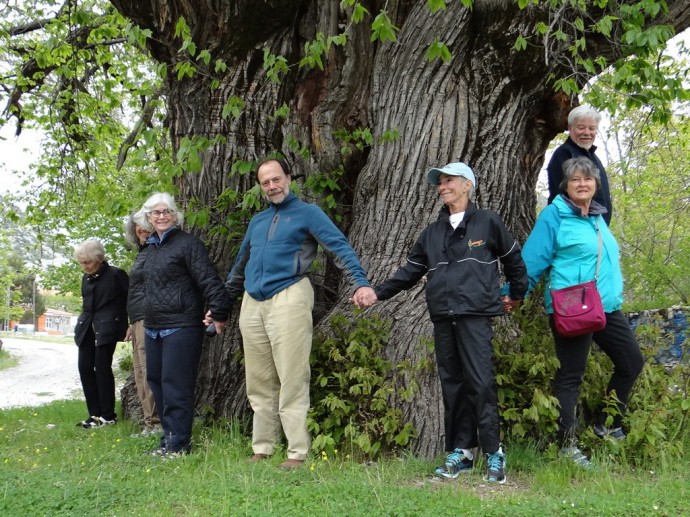
It is big enough to compare with our Calaveras Big Trees, sequoia gigantea.
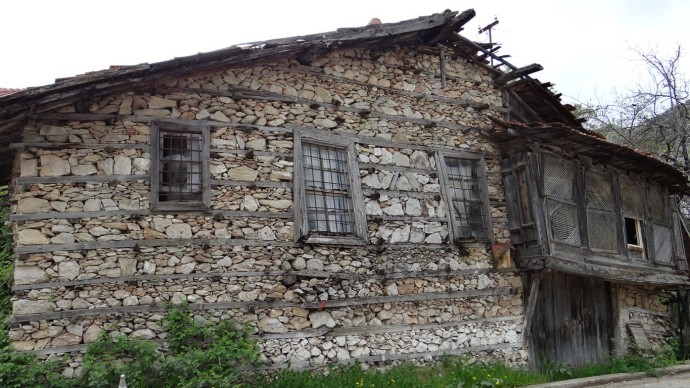
Early residents learned to build with the small rocks and stones typical of the area. No grand granite blocks nor adobe available.
.
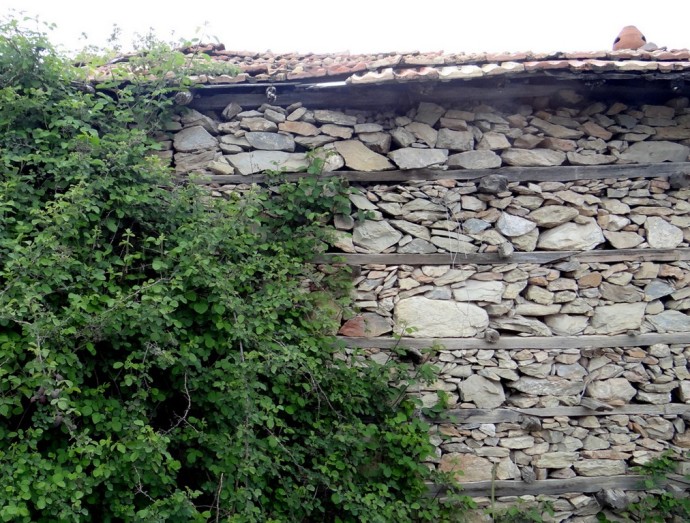
Two of them in town are being preserved and restored. We were given a tour of a wood frame building that a village committee has faithfully furnished and restored to be used as a hotel for tourists.
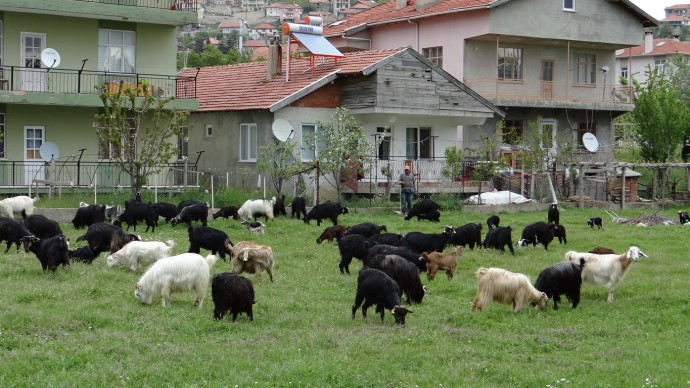
Enjoying a meadow, was quite a big herd of goats that run wild in the mountains and return to be milked. The farmer demonstrated milking these long haired nubians, but he was so quick, I couldn’t get my camera focused in time.
.
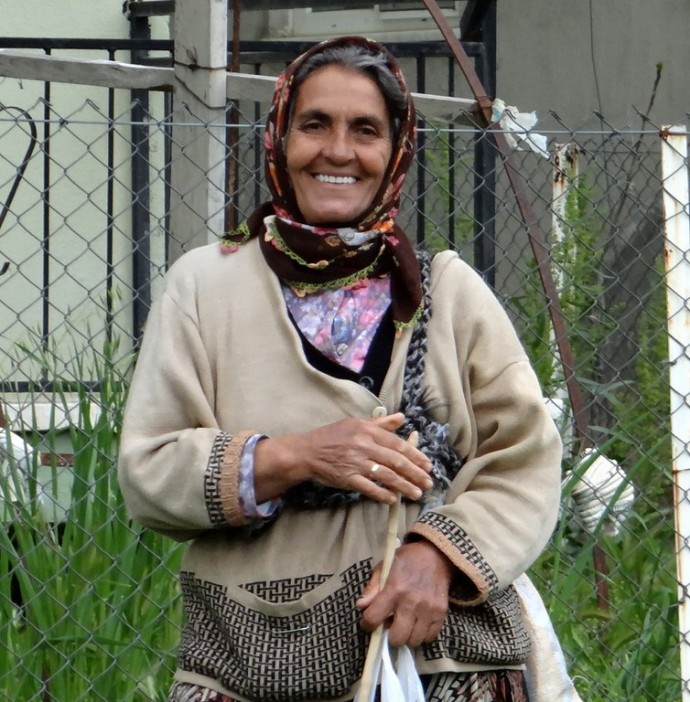
His wife posed for a picture.
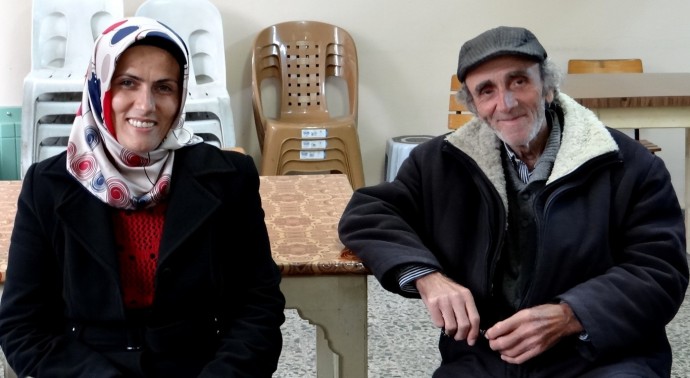
Weather is chilly, windy and raining lightly. We take cover in a cafe for tea when in comes our Hostess, Hatice Sekman. (Pronounced hat-jay.) The gentleman was in the cafe when we arrived.
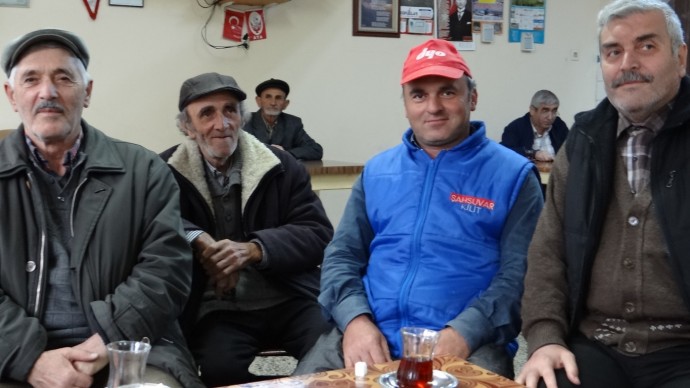
People came in to meet us with many questions and a lot of curiosity about Americans. The fellow in the bright blue jacket is very concerned about brain damage from cell phones and he wanted to know if we worry too? Our two doctors claim the evidence is preliminary and no one knows yet. They wanted to know ages and about our daily life. And they liked telling us about theirs. The fellow on the left is 71 and his father lived to be 94.
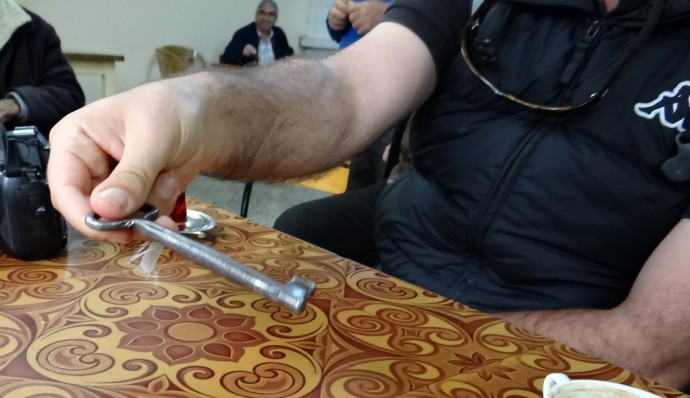
Usla gave us the key to the city. The joke being they had a hard time finding it because it hasn’t been used in many years. No one locks their doors here.
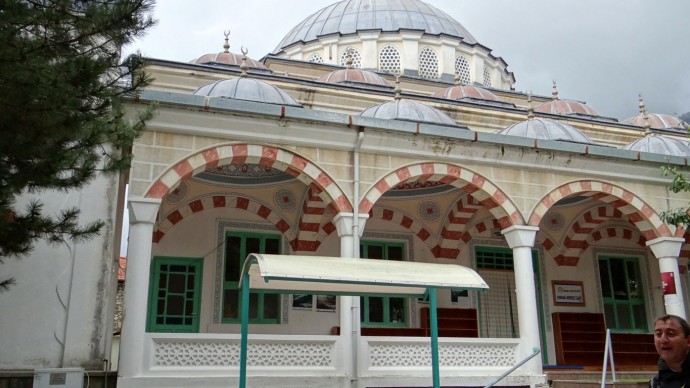
The rain was getting heavier and we dashed over to the Mosque to visit with the Imam.
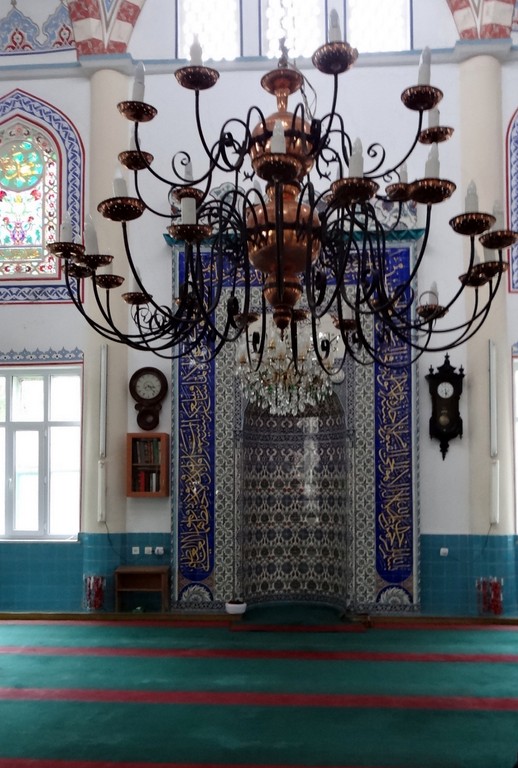
The niche is the equivalent of an altar, aligned with Mecca, people face it when they pray.
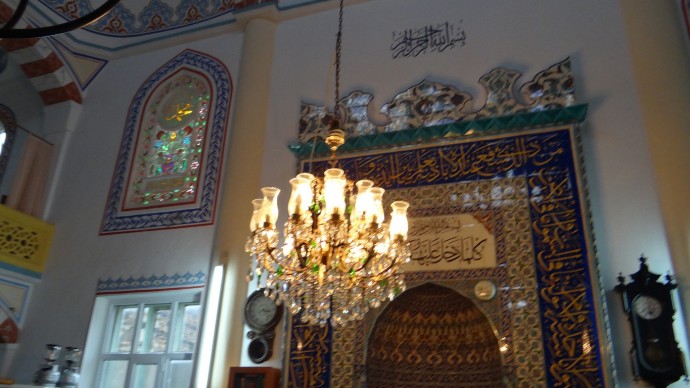
The Imam lighted the chandeliers, sang for us and answered our questions.
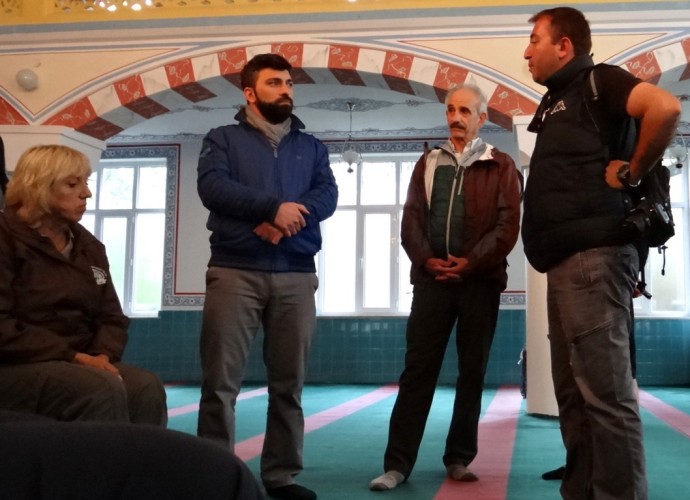
Like teachers and doctors, he is assigned to be Imam for a village. He was not born in this village. His sermons are delivered from Istanbul to every Imam in the country and each Imam preaches the same message. No one is allowed to go off message so that they don’t have rogue factions like they do in other countries. It seems smart in view of things, though my first thought was control of freedom of speech. One person asked if he would like to leave this village and he readily admitted, with several locals present, that, yes, he would like to be in charge of a bigger mosque where he could do more good. He sang for us, in the distinct wailing chant of the Imams. The muscles in his throat visibly contracting in ways different from normal speech. It was a wonderful experience and gives me chills when I think about it. (I was not ready with my camera and was unable to record it.)
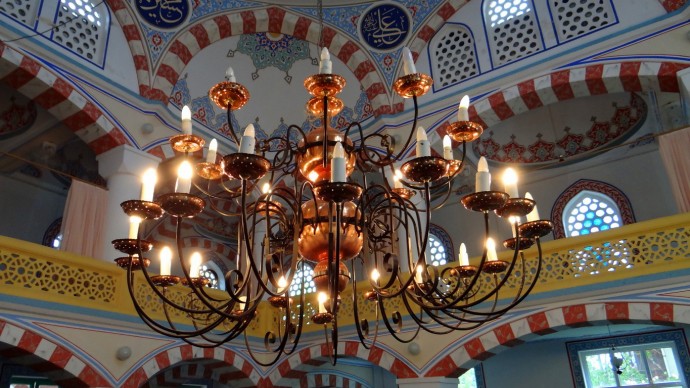
The government pays the Imams and pays to build the mosques, but this one was built and paid for by a rich donor.
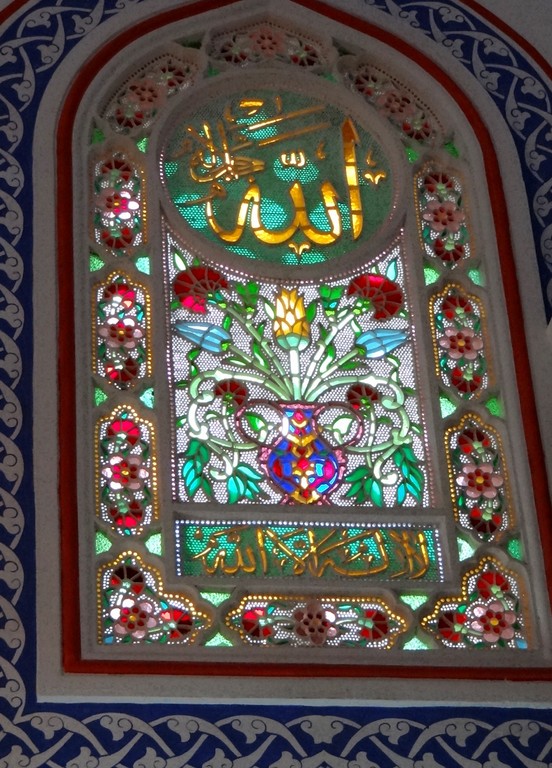
It is beautiful and quite sizable for a town of 3,000. About 20 people come to pray on Fridays.

It was pouring down heavily by the time we loaded into a bus to our hosts home.
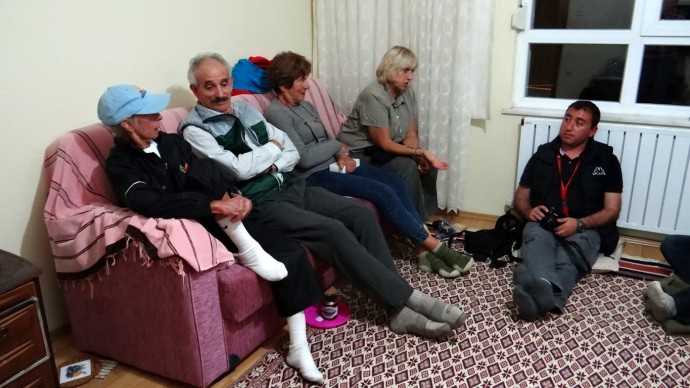
Usla is a very talented and fast translator and we talked for an hour and got acquainted and warmed up by the fire before dinner and bed
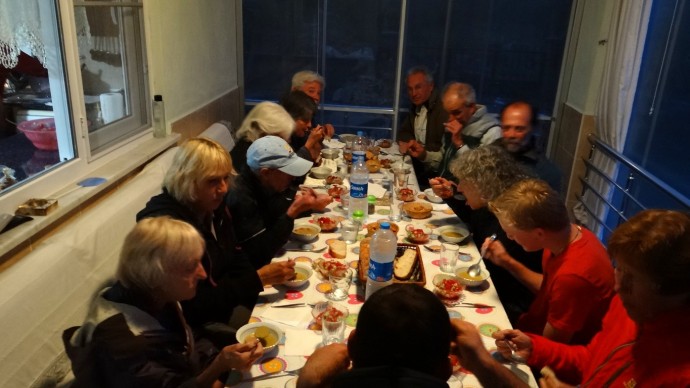
Hatice fitted us all on a sort of sun porch off her very modern kitchen. We ate lentil soup, an entre with rice and lamb, salad and she makes her own walnut-chili concoction and told us the basic recipe. She also served a sort of sweetened bread that I can only compare to tender corn bread except it was made from wheat flour.
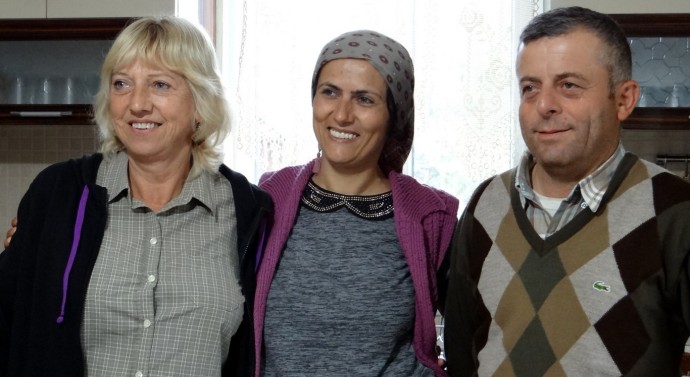
Gina with Hatice and her husband Ferhat (pronouced fed-het) During our talk we learned that her parents died when she was very young and she was raised by her cousins family. Ferhat is her first cousin, but it isn’t common to marry first cousins. They have one daughter, age 21 who is in college now. She encourages her daughter not to wear the scarf. It isn’t required of them, but it is tradition, especially in rural areas.
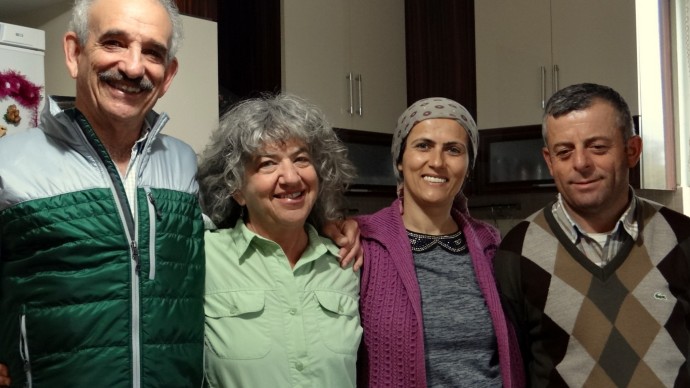
Norman and Joan with the Sekmens. Hatice was very curious about us and wanted to know where we were from, what we do, our children and ages. And Turkish men don’t do dishes, “They just eat,” she said. But we noticed he picked up dishes and refrigerated leftovers. She was a whirlwind and the kitchen cleaned up in 15 minutes. We slept like logs safe and snug from wind and rain.
No comments:
Post a Comment